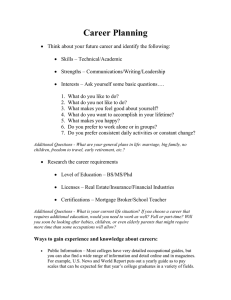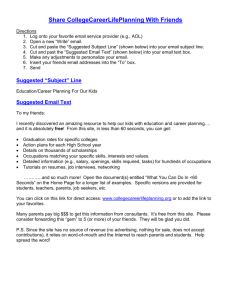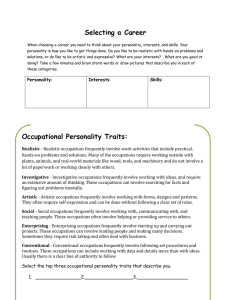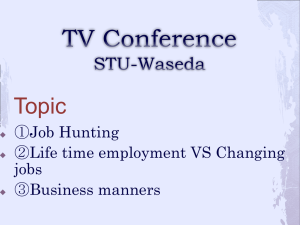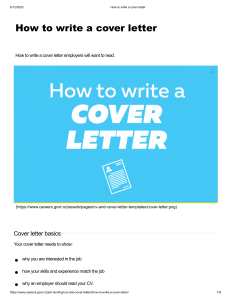Graduating .. What is Next?
advertisement
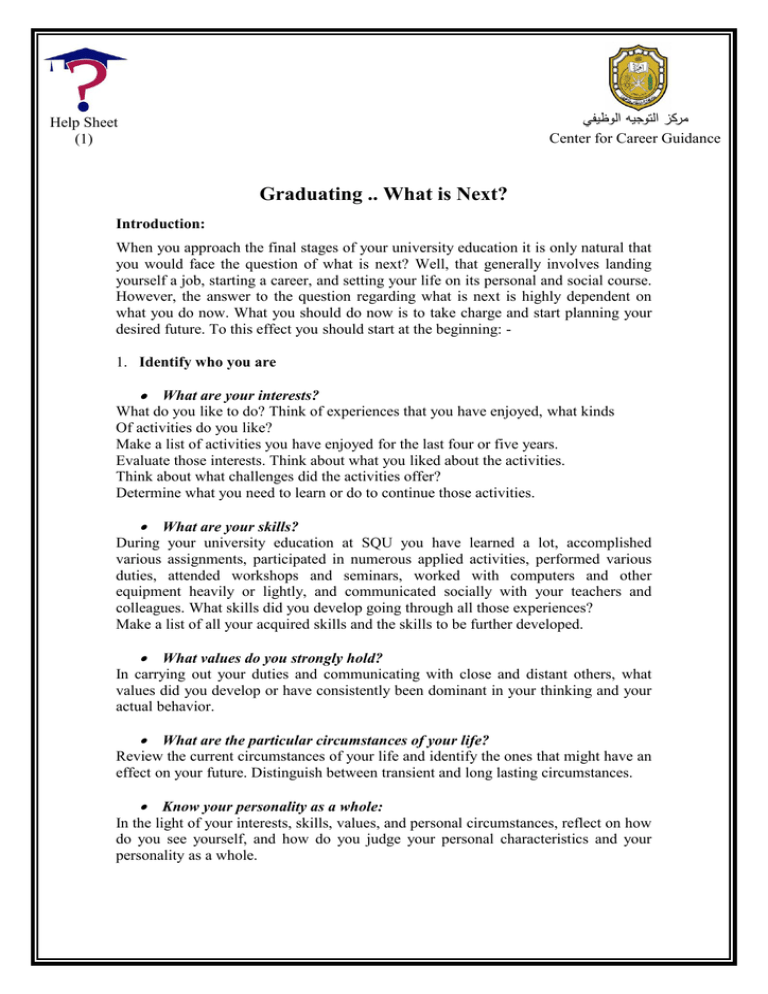
مركز التوجيه الوظيفي Center for Career Guidance Help Sheet (1) Graduating .. What is Next? Introduction: When you approach the final stages of your university education it is only natural that you would face the question of what is next? Well, that generally involves landing yourself a job, starting a career, and setting your life on its personal and social course. However, the answer to the question regarding what is next is highly dependent on what you do now. What you should do now is to take charge and start planning your desired future. To this effect you should start at the beginning: 1. Identify who you are What are your interests? What do you like to do? Think of experiences that you have enjoyed, what kinds Of activities do you like? Make a list of activities you have enjoyed for the last four or five years. Evaluate those interests. Think about what you liked about the activities. Think about what challenges did the activities offer? Determine what you need to learn or do to continue those activities. What are your skills? During your university education at SQU you have learned a lot, accomplished various assignments, participated in numerous applied activities, performed various duties, attended workshops and seminars, worked with computers and other equipment heavily or lightly, and communicated socially with your teachers and colleagues. What skills did you develop going through all those experiences? Make a list of all your acquired skills and the skills to be further developed. What values do you strongly hold? In carrying out your duties and communicating with close and distant others, what values did you develop or have consistently been dominant in your thinking and your actual behavior. What are the particular circumstances of your life? Review the current circumstances of your life and identify the ones that might have an effect on your future. Distinguish between transient and long lasting circumstances. Know your personality as a whole: In the light of your interests, skills, values, and personal circumstances, reflect on how do you see yourself, and how do you judge your personal characteristics and your personality as a whole. Review all of the above and determine the relationship between your Interests, skills, values, etc. and your chosen possible careers, as well as the other components of your desired future. 2. Identify what you want While your personal and social life is largely determined by external factors, your future career is strictly dependent on your educational background, your skills, your interests and the available career options. 3. Identify your options Start to research the available occupations that match up with what you have learnt about you. Find more information about the nature of the jobs that interest you such as educational requirements, salary, working conditions, future outlook, and anything else that seems relevant. 4. Setting your target Once you have gathered the necessary information regarding the available options, You can now narrow your focus to a few particular jobs or fields of occupations and Prioritize them. What Comes Next What comes next is to: 1. Learn about Applications filling, Resume writing, Covering letter writing, interview strategies, and the various Job-hunting techniques. 5. You should also prepare yourself for the excitement of the Job-hunting, as well as for frustration that might occasionally Accompany such endeavors * Make sure of reviewing the SQU Student Career Advisory Office other publications.
